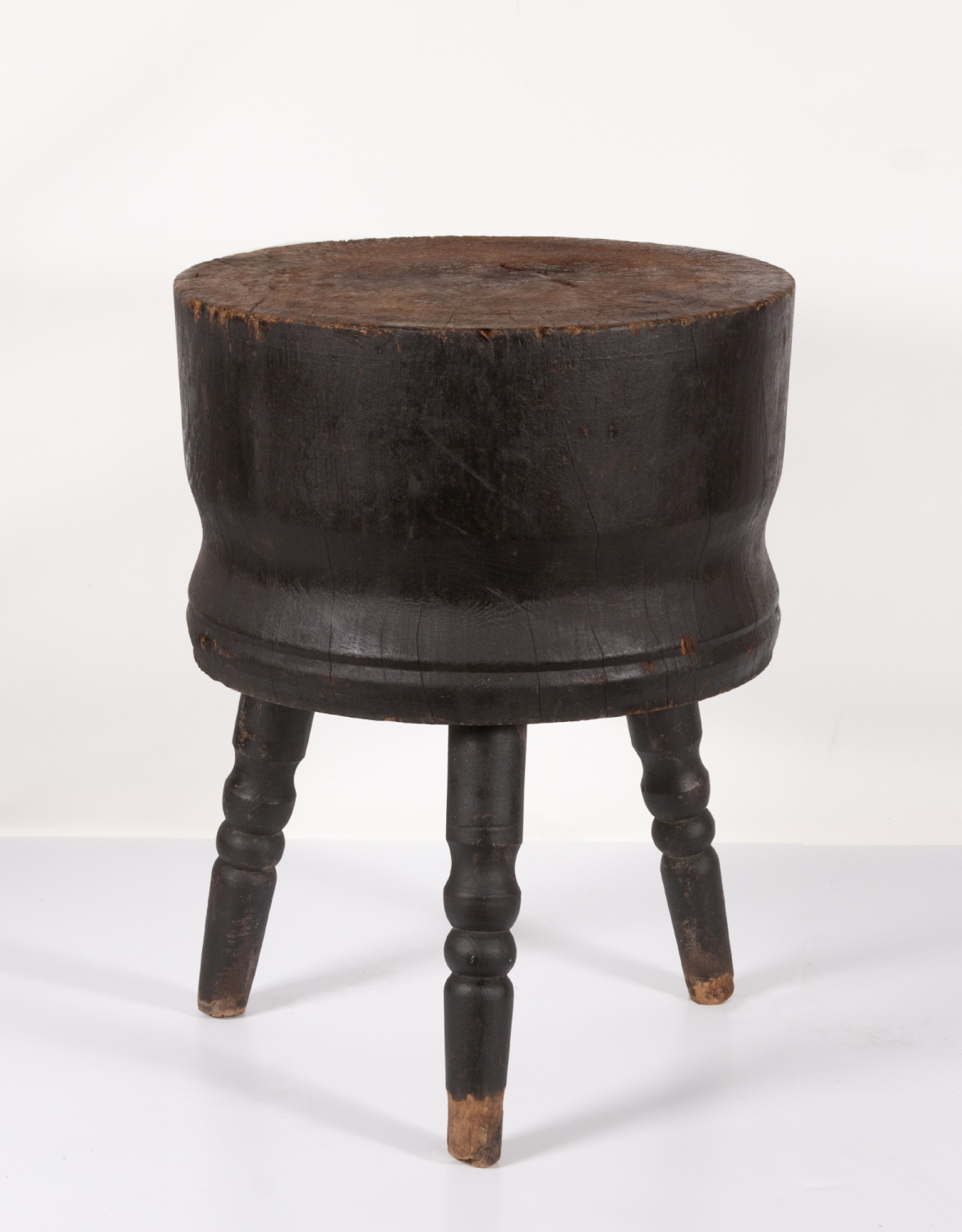
| |
EXCEPTIONAL BUTCHER BLOCK IN BLACK PAINT, WITH GREAT, ROUND, BARRELL-SHAPED FORM, MISSOURI ORIGIN, 1850-1890 |
| |
|
| Dimensions (inches): |
32.25" tall x 25" diameter. |
| Description: |
|
Found in Missouri, this shapely, mid-late 19th century butcher block with its beautiful, barrel-shaped form, is of a type known to sometimes surface in that region. The stout legs are attractively turned and proportioned and the construction, tightly fit and with a low center of gravity, is exceptionally stable.
Note that the top is a single section of 25” diameter log, turned on a lathe. Made of cherry or maple, with legs that appear to be poplar, the reddish oxidation is a nice complement to the black-painted surface. Because this is sort of opaque, probably from years of washing it down, the original red wash beneath shows through to give it great red undertone.
On the underside are various hand-painted notations from Elvins, Missouri. Founded in the last decade of the 19th century and part of modern-day City of Park Hills, in St. Francois County, Elvins is located about an hour south of St. Louis. The text reads: “Order of H. L. Hussmann R. & S. Co., Elvins, MO,” and “Carl Lupkey, Elvins, MO,” in addition to another word that is somewhat illegible.
The Hussmann firm was founded in St. Louis in 1906 by Harry L. Hussmann as a butcher's supply company. In 1917, Hussmann, patented the first refrigerated meat display case, which, using salt and ice, revolutionized the meat market by allowing customers to view the cuts before purchasing them. Among other supplies, Hussmann made their own knives.
Born about 1896 to settlers of Elkins, Carl Lupkey, who served as an elder in the Baptist Church for 63 years, beginning in the 1920’s, purchased a local grocery business in the 1940’s.
It's unclear how this butcher block was sourced. Perhaps Hussmann bought the contents of other butcher shops and tools of all kinds. Perhaps he had access to 24-foot hardwood timber and used a method consistent with the mid-19th century, as opposed to the first quarter of the 20th. Possibly he sold all manner of butcher shop items, both new and re-purposed. Whatever the case may be, the block at some point passed to Lupkey. This is an exceptional example in terms of form, construction, and early painted surface.
Condition: Expected wear. |
|
|
| |
|
| Primary Color: |
black, red |
|
| Earliest Date: |
1850 |
|
| Latest Date: |
1890 |
|
| For Sale Status: |
Sold |
|
| Price |
SOLD |
|
| E-mail: |
info@jeffbridgman.com |
|
 |
|
Page Views:... 2944 |
|


